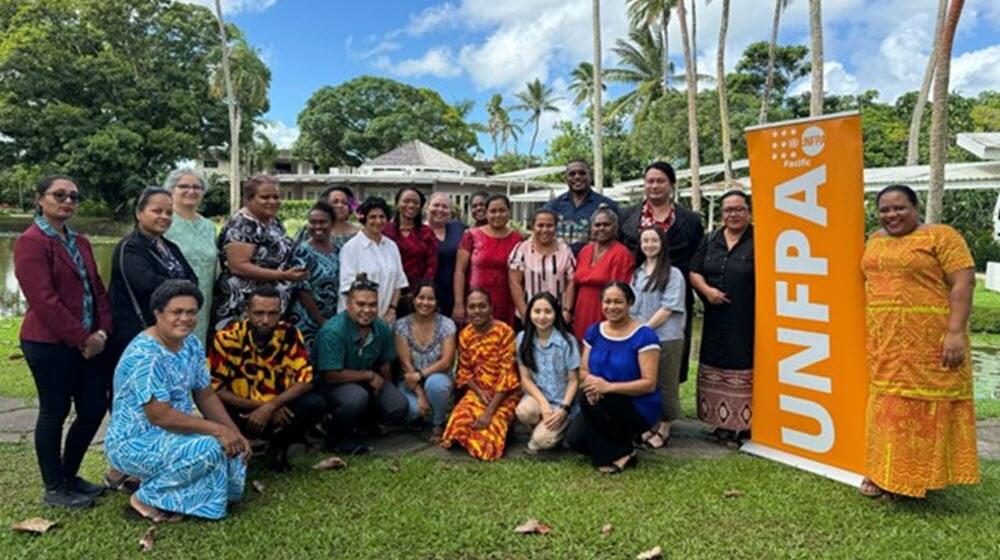Pacific Harbour, Fiji - UNFPA, in partnership with Track20, held a four-day regional Family Planning Estimation Tool (FPET) workshop for nine countries in the Pacific region: Federated States of Micronesia, Fiji, Kiribati, Marshall Islands, Nauru, Samoa, Solomon Islands, Tonga, and Vanuatu.
The workshop participants have been trained to use the FPET tools, received hands-on experience in reviewing service statistics data, and gained the skills necessary to prepare annual family planning indicators. Ultimately, the workshop sought to empower participants to contribute effectively to improved family planning data practices in their respective countries, aligning with global efforts to strengthen family planning initiatives. Further enhancing this impact, the workshop bolstered the Ministries of Health's capacity to use advanced tools and methodologies for data collection, interpretation, and utilization, thereby improving the monitoring of family planning programs in their countries.
The measurement of national sexual and reproductive health indicators, including modern Contraceptive Prevalence Rate (mCPR) is dependent on Demographic and Health Surveys/Multiple Indicator Cluster Surveys (DHS/MICS), which are only implemented every five to 12 years in the Pacific. This makes it difficult to track annual progress on the uptake of contraceptives and to identify trends. These survey-based indicators are required for national planning and FP program management in between these surveys. It is challenging for the Ministries of Health to accurately calculate the subject indicator.
To overcome this challenge, UNFPA Pacific, in collaboration with Track20, conducted a regional workshop to build the capacity of the nine Pacific Island countries that are part of the Transformative Agenda program Phase II to calculate and monitor their own annual family planning indicators through the use of the FPET, to facilitate informed decision-making at national and sub-national levels. This workshop enhanced the data analysis capabilities of participating Pacific Island countries and to calculate annual estimates for the prevalence of modern contraceptives.
Mr Sioape Kupu, Director of Corporate Services, and participant from the Ministry of Health in Tonga, said “We have learned a great deal around the methodology and definition of FP data in this FPET training workshop. It has been quite an eye-opening learning experience in regards to the analysis, methodology and projection of FP data. The tools provided in the training have equipped us to critically analyze, forecast and monitor FP trends and indicators enabling us to improve our service delivery, reporting and decision-making.”
“I am pleased with the successful conclusion of this first regional FPET workshop in the Pacific. Looking ahead, I anticipate that participants will use their country-produced service statistics more rigorously to make informed decisions and drive the continuous improvement of data quality, use, and availability”, said Dr Titilola Duro-Aina, Chief of Health & Technical Advisor SRHR.




